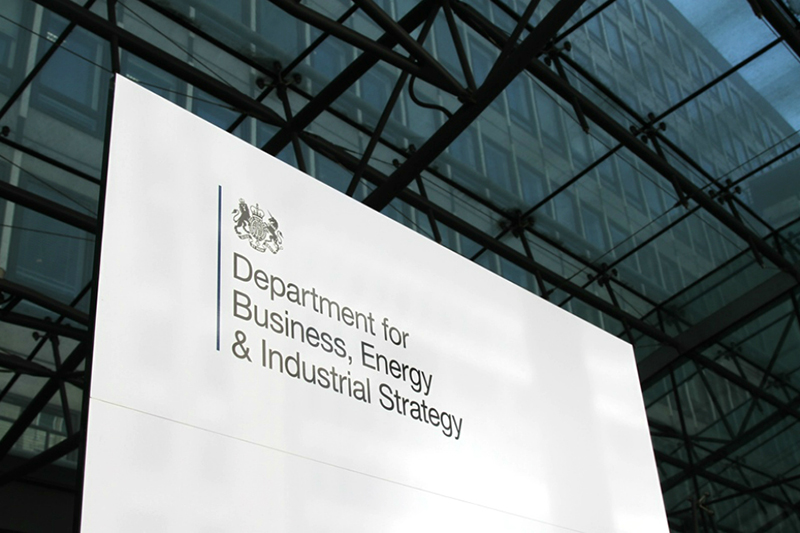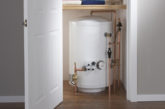
The industry has been responding to the government’s plans to ensure that low carbon, more efficient heating systems such as heat pumps will be no more expensive – and in many cases may end up cheaper – to buy and run than gas boilers. Here are some of the reactions so far…
Phil Hurley, Heat Pump Association
“The heat pump industry warmly welcomes these bold steps forward. The industry is in the best shape it has ever been, with sales this year already double those seen ever before.
“This announcement is timed perfectly to take advantage of the Heat Pump Association’s recently launched training course, with the industry now ready to retrain the UK’s army of installers with the capacity to train up to 40,000 per year, to ensure consumers can find a suitably trained and skilled heat pump installer when they need one.
“[The] announcement will give industry and installers a huge confidence boost that now is the time to scale-up and retrain in preparation for the mass roll out of heat pumps, as well as making heat pumps more affordable, so all consumers can soon access and enjoy the benefits of reliable low carbon heating that stands the test of time.”
Stewart Clements, HHIC
“As an industry, we have worked collaboratively to provide government with the information they needed to make policy decisions on the future of heat in domestic buildings in the UK. I am pleased that the key evidence outlined by HHIC has been acknowledged by BEIS.
“HHIC welcomes the publication of the Heat and Buildings strategy, HHIC and its members will continue to support the government and consumers with the transition to a mix of new, low-carbon heating solutions for different property types in different parts of the country – such as electric heat pumps, heat networks, and hydrogen boilers.
“The strategy from government allows the HHIC membership to make the investment choices required to facilitate the manufacturing, installation, and training for low carbon heating products.”
Brian Berry, FMB
“[The] Heat and Buildings Strategy needs to set out a bold and long-term plan of action to tackle the impact of our homes on the climate. Unfortunately, it is not looking encouraging. Grants for heat pumps is a step in the right direction so we begin to reduce our reliance on polluting and volatile fossil fuels, but incentives are also needed to make our existing homes better insulated.
“The Government appears to be only listening to one half of the story. If there is no detail in the Strategy on how we can address the megatonnes of carbon lost through the leaky walls and roofs of our homes, it will have failed and the benefits of installing heat pumps risk being lost.
“Without a long-term national retrofit strategy, including a proper skills plan and communications campaign, regular consumers won’t know what action they need to take, nor feel it’s within their grasp; and industry won’t take the long-term investment decisions needed to be ready to deliver. I can only hope that the Chancellor will use next week’s Budget to address some of these gaps.”
Isaac Occhipinti, HWA
“The government has to step up its efforts to decarbonise heating and hot water, and it was hoped that this long awaited Heat and Buildings Strategy would set us on the path to Net Zero.
“Unfortunately it fails to recognise the untapped potential of hot water storage-estimated to be around 7 times the capacity of the UK’s largest pumped hydro power facility (Dinorwig in Wales) – instead, focusing on the heat source and forgetting the rest of the heating and hot water system.
“There is much excitement around the role that energy storage technologies can play to help accommodate more low to zero carbon energy sources into the UK’s generation infrastructure, however, relatively little attention has been paid to hot water cylinders. There are currently approximately 9 million hot water cylinders installed, in homes across England, which is less than 45% of homes in England, down from 77% in 2001.
“In order to meet Net Zero all UK homes will need low to zero carbon heating. Most currently available low carbon heating solutions require a hot water cylinder. We are in desperate need of a strategy to stop the decline in hot water storage population in the UK. If the Government are serious, about decarbonisation then we need to encourage homeowners, at the very minimum, to keep their hot water cylinder in order to future proof their heating system and maximise the UK’s energy storage potential.
“In addition to meeting multi outlet demand, storage systems are essential partners to any renewable energy input as these sources need to be harvested and stored. Hot water storage is the only practical solution to turning the energy into something useful and banking it for when it needs to be used.
“The energy storage potential associated with the UK’s installed capacity of domestic hot water cylinders is comparable to our entire fleet of pumped-hydro-electric storage and with just a fraction of this resource; it would be possible to absorb the largest surpluses of renewable power that arise from offshore wind and solar PV.”
Kevin Wellman, CIPHE
“This is a step in the right direction, and should fund 1 in 20 of the government’s commitment to install 600,000 heat pump units per year by 2028. We applaud the £5,000 grant to help kick start the move to low carbon technology, as this will inevitably provide more choice when it comes to replacing ageing heating systems.
“The good news for those living off grid, is that the Homes Upgrade Grant, launching in April, will be funding insulation (and heat pumps for those suitable that want them) for low income households rated D and below in off-gas grid properties. However, swapping out-dated boilers for heat pumps will still be out of reach for the majority of lower income homeowners. Heat pumps run at considerably lower temperatures to traditional boilers at around 50oC (55oC max), and so homeowners will have to pay for considerable upgrades to insulation if they are to run affordably. As it’s these households who often face the highest heating bills due to a combination of higher tariffs, poorly insulated homes and older, inefficient boilers, its vital they are not left behind.
“The CIPHE would implore government to raise the bar on home insulation with a viable alternative introduced to the Green Homes Grant Scheme. With 66% of existing homes at Energy Performance Certificate D or worse, upgrading energy efficiency is the biggest step we can take to make sure housing is ready for low carbon heating, and should be one of the building blocks for net zero.
“The industry also needs support to train up to 100,000 installers in low carbon technologies to ensure systems are designed and installed correctly and efficiently. It is imperative that installers are sufficiently trained to NVQ level 3 or equivalent and be in possession of the CIPHE’s Low Temperature Heating and Hot Water design qualification. The world is watching the UK closely, so it’s crucial we have a robust approach to net zero and that the government strategy is one that pulls together the many strands required to make it work.”













